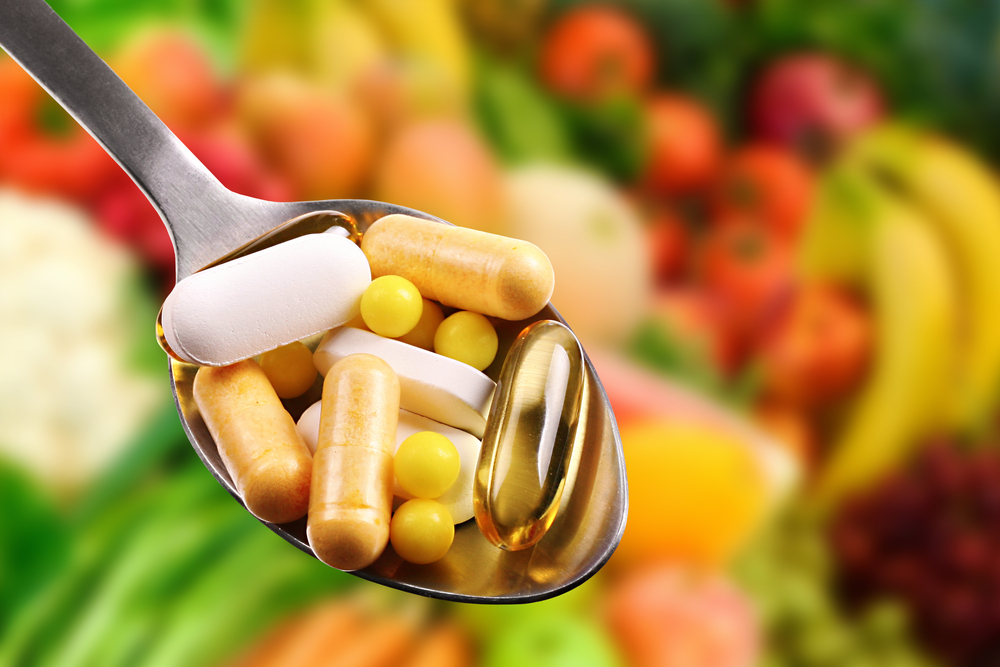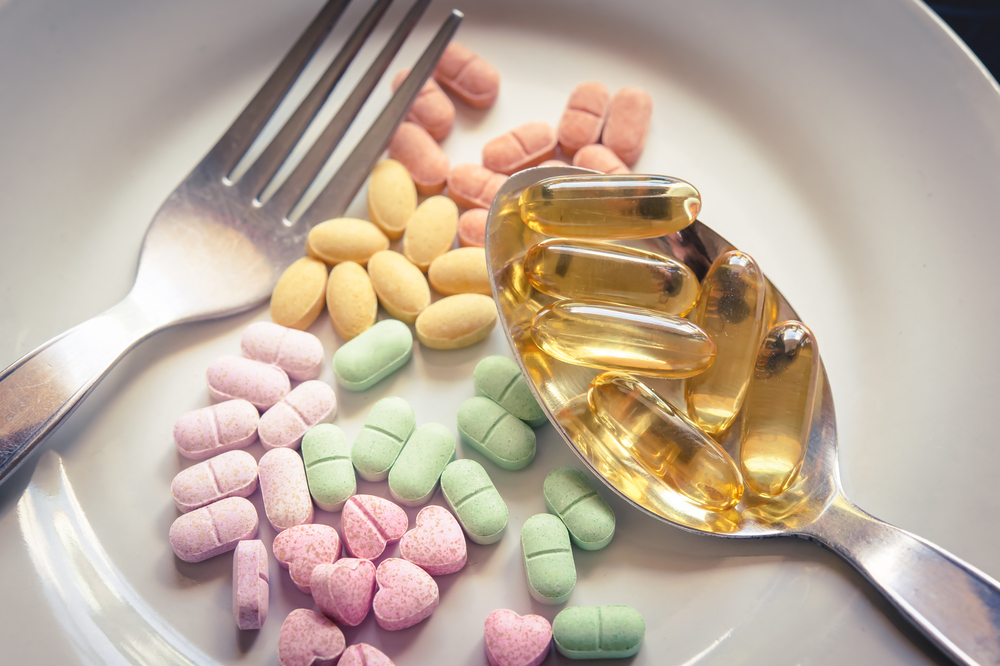The dietary supplements sector, particularly herbal dietary supplements, is a rapidly expanding market, with approximately 15% of the population consuming them daily 1.
Whether to lose weight, to have more energy, as part of sports nutrition or to prepare one's skin for the sun, they make it possible to make up for certain dietary deficits that occur during the course of life.
According to Synadiet (the National Union of Food Supplements), the consumption of food supplements is growing rapidly. The study they conducted showed that 4 out of 10 French people prefer to use food supplements based on plants or a concentrated combination of nutrients rather than a classic medicine.
These changes are likely to be linked to the emerging desire to go back to nature, but do these products have a real interest? Are they safe?
What are food supplements?
Food supplements are foodstuffs whose purpose is to supplement a normal diet and which constitute a concentrated source of nutrients, i. e. vitamins and minerals, or other substances with a nutritional purpose, capable of exerting a physiological effect, alone or in combination 3.
They are distinguished from medicines despite their form (capsule, capsule, tablet. . . ) because they are not intended to cure a disease (example: dietary supplements for sports goals, or food supplements for strength sports)
What does a food supplement contain?
Food supplements are subject to European regulations regarding their manufacture and marketing, as they are sold without prescription and distributed over the counter in pharmacies and online 4.
Indeed, the substances contained in these supplements (amino acids, plants, dietary fibres, vitamins and minerals. . . ) must belong to a list governed by the Anses (Agence Nationale de Sécurité Sanitaire de l'alimentation, de l'environnement et du travail).
The substances included in these supplements must be present in measured units in order to avoid any risk of overdosing in addition to a normal diet, and must not contain any substance for therapeutic use.
All French companies are obliged to have their new products validated by the competent authorities (DGCCRF) who check the composition, safety, legal mentions and reports of undesirable effects before agreeing to market them.
This ensures that the consumption of food supplements from a French marketer is safe for health if consumed in accordance with the advice for use.
Labelling of food supplements
The labelling of food supplements is again regulated. Indeed, it contains compulsory information and must not falsely boast of health benefits to the consumer.
Mandatory information
- The category of nutrients or substances characterising the product or the nature of these nutrients: as with food, the consumer must be able to read on the label the list of the main ingredients present in the supplement that have an effect on health.
- The recommended daily amount: the consumer must know how many tablets, capsules, etc. to take in a day for the supplement to have an effect.
- A warning of adverse effects if the dose is exceeded: to alert the consumer to the harmful effects of taking too much of the substance contained in the supplement
- A warning that the products should be kept out of the reach of children.
As stated above, a food supplement should not make claims for the prevention or therapy of a disease, as is the case with medicines. However, it may contain health claims.
A health claim is defined by the European Commission as any message or representation "which states, suggests or implies the existence of a relationship between a category of foods, a food or one of its constituents and health". 5
In other words, it indicates that the food supplement may have health benefits due to the substances and nutrients it contains and their physiological action alone or in combination.
But despite the legislation in force, these supplements must be handled with care. Indeed, with the development of online sales, it is not always easy to know the origin of the product or the nature of the nutrients or substances characterising the product.
What are the risks?
The quality of food supplements is not always assessed.
The distributor is solely responsible for the conformity of its products. Thus, for the sake of transparency, it is its responsibility to indicate to the user whether quality controls have been carried out.
The consumer must therefore remain vigilant as to the composition of the product, particularly when buying food supplements on the internet.
Beware of overdosing!
Food supplements are foodstuffs whose purpose, as their name indicates, is to supplement a normal diet, i. e. to make up for a deficiency or a deficit.
If there is no deficiency, it is called supplementation, the effects of which on health are not always known. In addition, be careful to respect the indicated doses and be vigilant to reports of adverse effects that may be linked to excessive consumption leading to overdose or interaction with parallel medication.
Also be aware of the consumption of several food supplements at the same time. Indeed, it is possible that several supplements contain ingredients in common, even if they have a different health purpose, which may lead to an overdose that may cause undesirable effects.
In conclusion, the dietary supplements sector is expanding rapidly. They are useful because they can compensate for dietary deficiencies and improve the overall health of the consumer.
However, as with food, be sure to check the quality of these supplements and do not hesitate to ask the company responsible for the conformity of the composition of the products you consume.
BIBLIOGRAPHY
1. Fassier P, Egnell M, Pouchieu C, Vasson M-P, Cohen P, Galan Pet al. Quantitative assessment of dietary supplement intake in 77,000 French adults: impact on nutritional intake inadequacy and excessive intake. Eur J Nutr 2018 doi:10. 1007/s00394-018-1815-x.
2. http://www. synadiet. org/sites/default/files/press/files/observatoire_des_complrments_alimentaires_synadiet. pdf
3. Decree n°2006-352 of 20 March 2006 on food supplements. 2006.
4. European Parliament. Regulation (EC) No 178/2002 of the European Parliament and of the Council of 28 January 2002 laying down the general principles and requirements of food law, establishing the European Food Safety Authority and laying down procedures in matters of food safety. 2002https://eur-lex. europa. eu/legal-content/FR/TXT/PDF/?uri=CELEX:32002R0178&from=FR. Accessed 23 July 2019.
5. Commission Regulation (EU) No 432/2012 of 16 May 2012 establishing a list of permitted health claims made on foods, other than those referring to the reduction of disease risk and to children's development and health Text with EEA relevance. 40.




